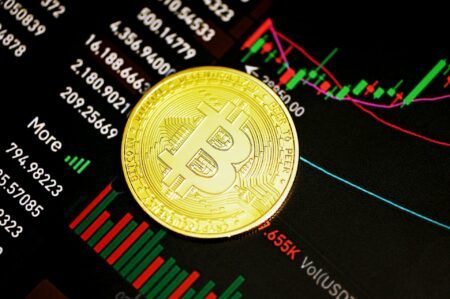On Thursday (January 30), Dan Morehead and Joey Krug, who are co-chief investment officers of blockchain-focused investment firm Pantera Capital, talked in their monthly “Blockchain Letter” about Bitcoin’s next block reward halving (which is expected on 12 May 2020, i.e. in just 100 days) and whether it is already priced in. This discussion, which formed of the January 2020 newsletter, was published as a post on Pantera Capital’s Medium blog.
They started by explaining what block reward halving means for Bitcoin:
- every ten minutes, a new Bitcoin block is mined;
- at every block reward halving, the reward for mining new blocks is halved, i.e. 50% fewer bitcoins are generated by the network;
- block reward halvings are scheduled to occur every 210,000 blocks, i.e. approximately every four years, until Bitcoin’s hard cap (or maximum supply) of 21 million bitcoins has been reached.
Bitcoin’s last block reward halving occurred on 16 July 2016; this was when the block reward was reduced from 25 BTC to 12.5 BTC (when the Bitcoin network started life, the block reward was 50 BTC).
Although historically there has been some correlation between block reward halvings and significant increases in the price of Bitcoin in the months preceding/following this event “due to a perceived scarcity of supply”, not everyone in the crypto community is sure that this is set to continue.
There are essentially two schools of thought:
- Those who are strong believers in the Efficient Market Hypothesis (EMH) — which states that asset prices reflect all available information — argue that “if we **all** know it’s going to happen then it has to be priced in”, meaning that they are not expecting a big increase in the price of Bitcoin due to the upcoming block reward halving.
- Those who say that not all retail investors (or even institutional investors) understand Bitcoin well enough to know what block reward halving really means, and so they argue the upcoming block reward halving has not been fully priced in.
Morehead and Krug remind us that legendary billionaire investor — like many other professional investors — does not believe that it is impossible to beat the market because the market is perfectly efficient.
In fact, according to Aaron Watson, who used the book “The Essays of Warren Buffett” as his source material, Buffett “even goes so far as to thank the academics who continue to teach this concept to their students” and that he has “benefitted from competing against ‘opponents who have been taught that thinking is a waste of energy’.”
Panter Capital’s two Co-CIOs say that “even if we think everybody knows something it doesn’t mean there isn’t a ton of money to be made.”
They also use the following classic economist joke to illustrate their point:
“Two economists walking down the street see a $20 bill lying on the sidewalk. The first economist says, ‘Look at that $20 bill.’ The second says, ‘That can’t really be a $20 bill lying there, because if it were, someone would have picked it up already.’ So they walk on, leaving the $20 bill undisturbed.”
They believe that since most miners “sell their block rewards as fast as they can” (because they need money to cover their expenses), the halving of the block mining reward means that “the number of bitcoins they receive and thus sell is cut in half”, and so this should “have an impact” on the price of Bitcoin.
Featured Image by “Maklay62” via Pixabay








